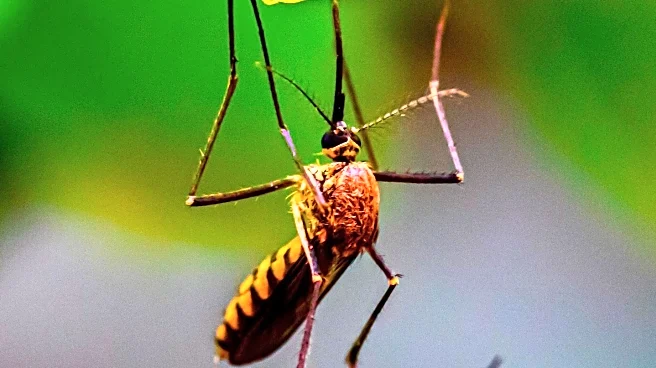What's Happening?
The Federal Government has called on African leaders to take full ownership of the fight against malaria, emphasizing the need for domestic solutions and sustainable financing. Professor Muhammad Ali Pate, Coordinating Minister of Health and Social Welfare, highlighted the importance of reframing malaria as an African problem and mobilizing resources within the continent. Despite Nigeria's long-standing malaria control program, the country still bears a significant portion of the global malaria burden. The government is taking steps to localize malaria control efforts, including establishing diagnostic kit manufacturing plants and integrating malaria case management into primary healthcare services. The call for sustainable financing includes expanding Nigeria's fiscal space through new tax measures.
Why It's Important?
Malaria remains a leading cause of illness and death in Africa, with the continent accounting for the majority of global cases and deaths. The Federal Government's initiative to localize malaria control efforts presents economic opportunities, such as job creation and retaining value within the economy. The emphasis on sustainable financing and strengthening health systems is crucial for reducing hospital visits and complications related to malaria. The collaboration across governments, NGOs, and the private sector is essential for overcoming challenges like insecticide resistance and climate change, which exacerbate the spread of malaria.
What's Next?
The Abuja meeting aims to strengthen political commitment and align continental strategies toward malaria elimination by 2030. The conference is expected to produce a roadmap to accelerate malaria elimination efforts, mobilize domestic financing, and reinforce Africa's role in global malaria eradication strategies. The Federal Government emphasizes the transition from dependency to ownership, urging African countries to treat malaria as an African problem and invest in research, development, and environmental control measures.









